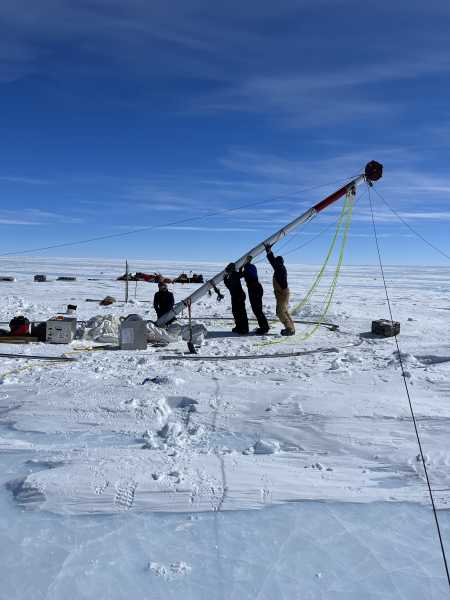
Researchers have extracted samples from the bottom of Lake Chala (pictured above) to gain insight into our planet's climate over the past 150,000 years. (Photo credit: Jacek_Sopotnicki via Getty Images)
A tree-lined lake in Africa has become a source of data on the Earth's magnetic field over the past 150,000 years.
A core of rock and sediment dug from the spectacular Chala Crater Lake on the border of Tanzania and Kenya contains a record of changes in the Earth's magnetic field. The material also provides valuable information about the climate over the past 150,000 years, as modern humans left Africa and moved to the Arabian Peninsula and then Europe and Asia.
“We’re trying to figure out what conditions drove [humans] to leave Africa and colonize the rest of Eurasia,” says Anita Di Chiara, a paleomagnetist at Italy’s National Institute of Geophysics and Volcanology in Rome. But to use ancient sedimentary records to reconstruct past climates, “we need eras,” Di Chiara added in an interview with Live Science. “We need a way to date these sediments.”
You may like
Sourse: www.livescience.com





